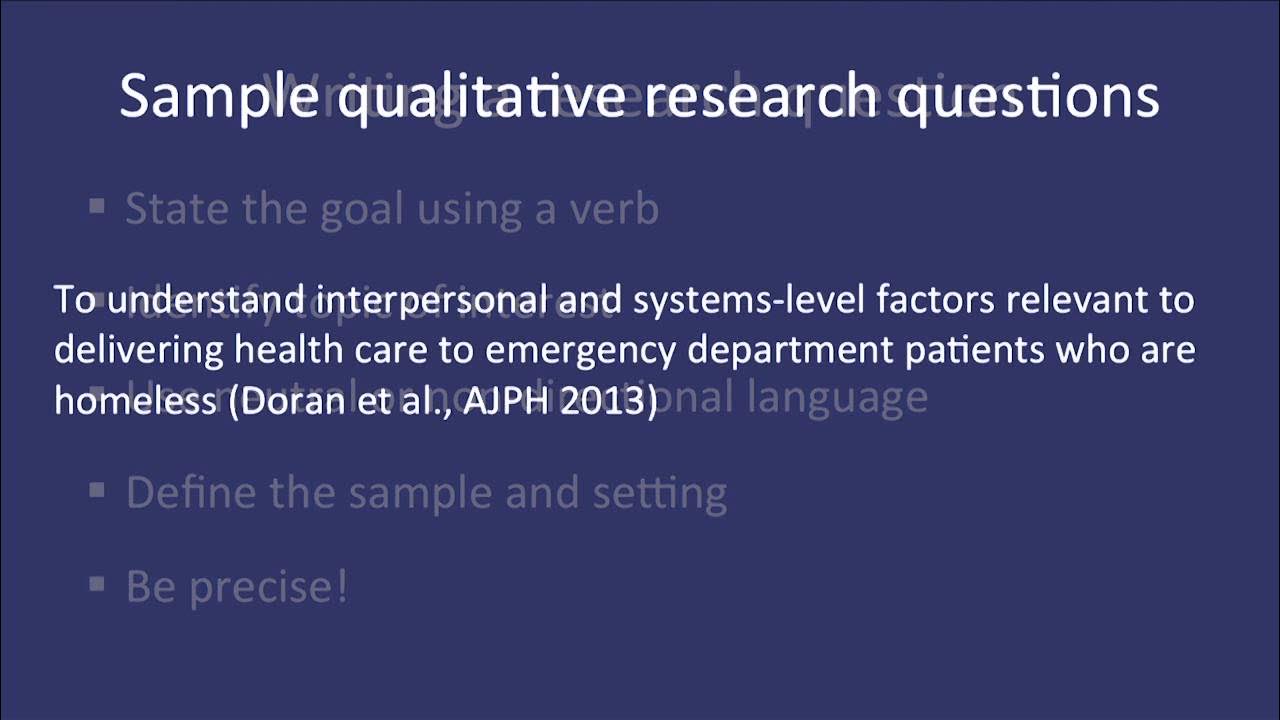25 September 2024
Summary
TLDRThe lecture focuses on research methodology, guiding students on how to frame research topics, particularly in health sciences. The lecturer provides examples of research titles related to hand hygiene in children, the effectiveness of warm compresses for fever reduction, and the implementation of health programs. Practical tips for selecting research topics based on course material, such as KDM (Basic Human Needs), are discussed. Students are encouraged to explore online references, critically analyze research topics, and submit their findings via Google Forms. The lecturer emphasizes that writing a thesis is simple with a critical and structured approach.
Takeaways
- 📚 The lecture continues the research session from the previous class, aiming for a more focused approach.
- 🔍 Research topic examples include: the relationship between knowledge and handwashing practices in kindergarten children or the effectiveness of warm compresses to reduce fever.
- 📝 Students are encouraged to frame their research topics around practical health issues, like implementing health awareness programs for teenagers at clinics.
- 💡 Another suggested research topic: studying a WhatsApp group model to remind TB patients to take their medication.
- 🏥 Technical topics are also discussed, such as researching techniques like using cloth under the hand for IV placement.
- 🧠 For student research, it's important to align topics with course subjects, such as nutrition and communication, and base projects on related material.
- 🍽 An example research topic could be the potential of 'nasi tim' in aiding recovery for typhoid patients.
- 🔬 Research can also involve practical aspects like determining effective techniques for reducing fever in typhoid patients using different compress types.
- 📊 Students are required to gather five references from Google Scholar or similar sources and build their research plan based on these references.
- ✅ The lecturer emphasizes that writing a thesis is manageable if approached critically and with clear thinking, encouraging students to avoid overcomplicating the process.
Q & A
What is the main focus of the lecture?
-The lecture focuses on research methodology, specifically on how to frame research questions and select relevant vocabulary for topics such as health interventions, program implementation, and patient treatment outcomes.
What are some examples of research topics mentioned in the script?
-Examples include the relationship between knowledge and handwashing practices among kindergarten students, the effectiveness of warm compresses for reducing fever, and the implementation of health awareness programs for adolescents.
How does the lecturer suggest formulating research questions?
-The lecturer suggests using practical, clear language and focusing on specific aspects of health, like the impact of interventions, the effectiveness of programs, and patient recovery outcomes. For instance, using words like 'relationship,' 'effectiveness,' and 'implementation' to frame the research.
What is one research example related to tuberculosis (TB) mentioned in the lecture?
-One example is a study on a WhatsApp group intervention designed to remind TB patients to take their medication, analyzing whether this method helps improve adherence to treatment.
How can students choose a research topic based on their coursework?
-Students are advised to relate their research to topics covered in their courses. For instance, if their course is about basic human needs (KDM), they might research topics such as nutrition, hygiene, or patient care related to specific conditions like typhoid.
What is an example of a nutrition-related research question from the lecture?
-An example is researching whether consuming soft rice (nasi tim) improves recovery in typhoid patients, aiming to verify if theoretical nutritional recommendations are effective in practice.
What are some common themes that students can focus on when selecting research titles?
-Students can focus on themes such as the implementation of health programs, patient recovery, the effectiveness of medical techniques, and patient behavior or knowledge related to treatment adherence.
What is the lecturer's advice on handling the research process?
-The lecturer advises students to approach research critically and thoughtfully, ensuring they plan and reflect before conducting their study to avoid delays. The lecturer emphasizes that writing a thesis is not difficult if approached with clarity.
What tasks were assigned to the students in the lecture?
-Students are tasked with completing a Google Form, where they need to list their favorite course and research five references from Google Scholar related to their topic of choice, then develop a research plan based on those references.
What is the lecturer’s overall message to students regarding their research projects?
-The lecturer encourages students not to overcomplicate their research and reminds them that critical thinking and proper planning are key to completing their projects successfully.
Outlines

Cette section est réservée aux utilisateurs payants. Améliorez votre compte pour accéder à cette section.
Améliorer maintenantMindmap

Cette section est réservée aux utilisateurs payants. Améliorez votre compte pour accéder à cette section.
Améliorer maintenantKeywords

Cette section est réservée aux utilisateurs payants. Améliorez votre compte pour accéder à cette section.
Améliorer maintenantHighlights

Cette section est réservée aux utilisateurs payants. Améliorez votre compte pour accéder à cette section.
Améliorer maintenantTranscripts

Cette section est réservée aux utilisateurs payants. Améliorez votre compte pour accéder à cette section.
Améliorer maintenantVoir Plus de Vidéos Connexes

Research Paradigms & Philosophy: Positivism, Interpretivism and Pragmatism Explained (With Examples)

MK METODOLOGI PENELITIAN - Pert. 1

Steps in the Research Process

Fundamentals of Qualitative Research Methods: Developing a Qualitative Research Question (Module 2)

Jenis dan rancangan penelitian (Metode Penelitian)

How to Write Research Introduction for SHS, College, and GS (Taglish)
5.0 / 5 (0 votes)
